- Home
- Jim Fergus
The Wild Girl: The Notebooks of Ned Giles, 1932 Page 2
The Wild Girl: The Notebooks of Ned Giles, 1932 Read online
Page 2
Flowers lowered his rifle, slipped it back into the scabbard that hung from his saddle, shook his head and muttered to himself in some disgust. It had been revealed to him, the face of his own fear—the vision of Satan in the person of a child, this young girl. He knew that the Mexican government had recently reinstated the bounty on Apache scalps in an attempt to rid the country once and for all of the scourge of savages that had plagued them for so many generations. Yet, though this would certainly be a legal kill, Billy Flowers had never before taken another human being’s life, and he would not do so now, even one so primitive and so far from God as this one.
Flowers reached into his saddlebag and brought out a small package of waxed paper, which he unfolded to reveal a single tortilla folded around a piece of honeycomb from a beehive he had raided earlier. He carried very little food when he was hunting, eating mostly what he killed, believing that the flesh of the lion and the bear gave him and his dogs the strength of the animal. But he had a weakness for sweets and had never been able to resist honey.
Now he stepped forward again, peering up at this wild child in the tree, unwrapped the tortilla, and watched as the girl cut her eyes to it, the dogs, too, attentive to his every move. “I expect you’re hungry, heathen,” he said in a voice not without some measure of kindness. He pulled off a piece of the tortilla, squeezing honey onto it from the piece of hive like a sponge. “Yessir, missy,” he said, taking a bite, chewing slowly, licking his fingers with great care and relish. “I expect you’re mighty hungry.” He pulled off another piece and reached it up toward her. “Here. Go on. Take it.”
The girl watched him impassively, but made no move to accept his offering.
The old man studied her, finally nodded. “No, I don’t suppose I’ll get you down out of that tree until I put the dogs up, will I?” he said.
He folded the tortilla and honeycomb back up in the wax paper and slipped it into the breast pocket of his shirt. Then he turned to the mule and pulled his dog chains from a saddlebag. He led the dogs lower down the slope to a grove of mesquite saplings, where he tethered each in turn to a tree.
“All right, little missy,” he said, coming back up to the girl, “come on down out of that tree. Dogs won’t harm you now.” He slipped the tortilla out his pocket and waved it toward her, making it clear that if she wanted it she would have to come down for it.
She looked at the tortilla, then at Flowers, then at the dogs. He held it up again. “Come, have a little bite to eat,” he said, talking mainly for the comfort of hearing his own voice, in the same way that he often spoke to his dogs, who were for months at a time his only companions, addressing them just as if they were people and understood his every word. “Dogs are put up, child. I’m not going to hurt you.”
Without taking her eyes from him, the girl began to climb out of the tree, dropping quiet as a spirit from the lowest limb to the ground, the tatters of her dress fluttering faintly with a sound like distant birds on the wing. Flowers couldn’t help but notice the wild grace of her movement, a kind of otherworldliness, in the same way that the coyote and the wolf have a gait so distinct from that of the domestic dog.
“Won’t do you any good to try to run off,” he warned her. “I’ll let them loose after you again, and this time they catch you they’ll tear your heart out.” He reached out the tortilla to the girl, but still she made no move to take it from him. “I will give you a shirt to wear, child,” he said, vaguely unsettled by the unfamiliar sight of the girl’s small brown breasts visible through her shredded dress. “You’re practically naked. And by God Almighty, I am told that I’m a strongly aromatic fellow myself, having only rare opportunity to bathe, but you child, yours is an unholy scent. You stink like a beast of the wilds. It is no wonder that my dogs took you for a varmint.”
The girl watched him, her eyes so dark that they appeared black, the sclera itself coffee-colored, an anatomical difference for which the “White Eyes” had gained their name. Billy Flowers had known some Apaches over the years; he had trailed game through their reservations in Arizona and New Mexico, and in general he found them to be a squalid, indolent sort, given to drink and gaming, a people for whose salvation he held out scant hope. But this child was different, untamed and of an earlier race of man altogether, a prehistoric being.
“I’m afraid that the Good Lord has his work cut out with you, young lady,” Flowers said. Then he turned back toward his mule to fetch his shirt with which to cover the heathen girl’s nakedness.
THE NOTEBOOKS OF NED GILES, 1932
7 DECEMBER, 1999
Albuquerque, New Mexico
A man’s memory is the faultiest of instruments, vulnerable to retrospection and revisionism, altered by age and distance, skewed by heartbreak, disappointment, and vanity, tainted always by the inconsolable hope that the past was somehow different than we really knew it to be. This is why memoirs are always, by definition, false. But a photograph never lies. I think it is what attracted me to the form originally. My own memory is largely visual, the years and decades of my life defined by images, hundreds of thousands of photographs taken over the past half century, although what has become of most of them I could not say. It hardly matters anymore; I don’t need to look at the images themselves in order to remember, for they live on perfectly preserved in my mind; I can see the light and composition of each, the specific expression on a subject’s face, a sweep of landscape, the naked truth of an empty room, sunlight spilling across a doorway, the door itself half open, the mystery inside.
I close my eyes and see with perfect recall a dark-eyed girl of my youth running down a dry arroyo. She is slight, strong, fierce, her skin the color of a chestnut, her hair black and thick as a mane. I freeze her in my camera lens, but she moves on like a dream, refusing to be stilled. Many people believe that a photograph is an inanimate object, time stopped, frozen in place. But it is not. It is only that specific moment between what just was and what is about to come, a single moment alive and moving forever between past and future.
I no longer take photographs; I don’t need to make any more memories, I have more than enough to last. My health is poor, my heart bad; I wake up in the middle of the night short of breath to feel it fluttering weakly in my chest like a dying bird. I don’t have long to live.
Still, the imminence of death does not prevent me from hearing the continual click of shutters in my dreams, or from seeing the old images passing in my mind’s eye like a slide show. Quite the contrary. The old saw has it that as you grow older you can’t remember whether or not you took your medication five minutes ago, but you can remember with total recall something that took place fifty, sixty, seventy years ago. This is appallingly true.
It was my habit for many years to keep detailed notebooks of my travels and of my work. Journals are kept largely for the benefit of the journal keeper, in my case, as a way to chart my progress, or lack thereof, as a photographer. And if, as I believe, we define ourselves through our work, our professions, our accomplishments, these notebooks also serve to chart my progress, or lack thereof, as a human being, a matter which may be of little interest to anyone but myself.
I kept the following notebooks in the year 1932, the middle of the Great Depression, not only another era, but another lifetime ago. They describe a trip I made across the United States and into the Sierra Madre of Mexico when I was seventeen years old. It is another of my beliefs that our characters are forged at a very young age, and although our circumstances may certainly change dramatically in the course of our lives, our fundamental natures do not. All the self-improvement schemes, the twelve-step programs, the mood-stabilizing medications and therapies later, we are still more or less stuck with ourselves. And while these notebooks frequently reflect the innocence, callowness, and sometimes pretensions of a seventeen-year-old, when I read them all these years later, I am struck by how clearly I recognize myself, how much a part of me that odd, angry, heartbroken, hopeful, stupid boy still is. And not discou
nting the inevitable decay of body and mind that has taken place in the intervening sixty-seven years, I am struck by how little, finally, I have changed. The revelation that I go to my grave as the boy I once was and still am, and always will be, alone makes having preserved these notebooks all these years well worth it. In the same way, how extraordinary to be an old man looking back upon one’s youthful self, and reading in the very first paragraph as that youthful self looks ahead to his own old age. It is a bit like standing between two facing mirrors and gazing down the tunnel to infinity that they create.
My original working notebooks contained photographs, sometimes loose and sometimes pasted on the page. I’ve lost many of these images over the years, and for practical reasons, those that have survived have not been reproduced in this manuscript, although I may have referred to them from time to time in these pages. I’ve also deleted many references to photographic technique and equipment, simply because they would bore all but the most serious student of photography. Finally, the reader will notice that some entries are dated, others not. I don’t exactly remember the reason for these inconsistencies, but my guess is that especially during our brief time among the bronco Apaches in the Sierra Madre, I had no idea what the date was, and as we lived in an alternate reality there, it hardly seemed to matter.
Other than that, the following story is true—not as it is remembered sixty-seven years later through the gauze of time and memory, and related by an old man who might wish to aggrandize himself before his death, but exactly as it happened to a seventeen-year-old boy named Ned Giles in that long-ago year 1932.
NOTEBOOK I:
Leaving Home
5 JANUARY, 1932
Chicago, Illinois
Tomorrow morning I leave Chicago, and so tonight I begin a brand-new notebook to record my trip. All the others, the dozens that I’ve kept since I was a little kid, I’ve decided to leave behind here, along with my old life. A new notebook for a new life. It’s bound to be a grand adventure, and maybe someday my children and grandchildren will want to read about it. Maybe when I’m an old man, sitting on the front porch in my rocking chair, I’ll want to read about it myself. I’m excited about going, but I have to admit that I’m a little scared, too. I have butterflies in my stomach tonight and I can’t sleep anyway, so I think I’ll just begin by telling how it is that I came to be leaving home in the first place.
I have been living alone in our house since the deaths of my parents over three months ago. It wasn’t until a week or so ago that anyone even noticed that I was alone here. I think people are a bit distracted; everyone has troubles enough of their own and what’s one orphan kid compared to all the folks who have lost their homes and are living out on the street?
My mother died in Presbyterian–St. Luke’s Hospital last fall. She’d been sick for over a year with the cancer. I didn’t really know it at the time, but my father was already under a great deal of pressure with his business. Pop was the first Studebaker dealer in Chicago, but I guess people haven’t been buying too many automobiles the past couple of years, and he got himself in a good deal of financial trouble. The last thing my mother said to me before she died was, “Take care of your father, Neddy, he’ll be lost without me.”
We buried my mother in the Oak Park cemetery on a cold, blustery October morning. All I really remember now about the service was the mourners all bundled up in winter overcoats, and the yellow leaves swirling on the wind. Ten days later my father put a gun in his mouth in the bathroom of our house and blew the back of his head out. I found him there when I got home from classes, sitting slumped over on the toilet. He left an envelope with my name on it propped up on the bathroom shelf. Inside there was a copy of his insurance policy and the keys and title to his new Commander Eight Roadster. There was a short note in the envelope explaining that I would be better off with the car and the money, and that he wished he could have left me more. I’m sorry, son, Pop said in his note, but I just can’t go on without your dear mother. You’ve always been a good boy. I know you love taking pictures. Why don’t you buy yourself a good camera. Good luck, Ned. Love, Pop. That was it. Pop’s final advice to me. “Why don’t you buy yourself a good camera.”
I guess I sound pretty cold about it, don’t I? I loved my parents but I haven’t been able to cry for them yet. I guess when Mom died, I was too busy worrying about Pop. He was in pretty rough shape, drinking too much scotch and crying himself to sleep every night. But I never thought he was going to kill himself. And to tell the truth, I’m just so damn mad at him for it. What kind of father leaves his only child alone like that? I loved my father but I realize that he was a weak man. I think he had a responsibility to stay around and take care of us.
My uncle Bill, Pop’s unmarried younger brother, came out from California to help with the funeral arrangements, and to settle Pop’s insurance. I really don’t know him very well, but he’s a nice enough guy. I didn’t want to go live with him out there, and I don’t think he wanted me, either. So I lied and told him I was going to live with my mother’s sister in Cincinnati. Uncle Bill seemed pretty relieved about that, even though my mother doesn’t have a sister in Cincinnati.
“You just be sure to send me a card with your new address once you get there, kid,” he said. “You know if you ever need anything, anything at all, you can always count on your old uncle Bill.” He smiled as if he was kind of embarrassed about saying this, because, of course, we both knew that it was not so.
I’m a year ahead of my age in school, already one semester into my first year of undergraduate studies at the University of Chicago. And I hold a part-time job, or at least I did until just recently, at the Chicago Racquet Club, a private men’s club downtown. I’ve worked there in the summertime for years. I started out as a ball boy for the tennis pro, and later I worked in the clubhouse. I’ve done a little bit of everything at the club over the years. I’ve washed dishes in the kitchen, cleaned the squash courts and locker room, waited tables in the dining room. I’ve always been popular with the members because I’ve been there since I was a kid, and I’m quiet and polite, so that eventually the rich men forget I’m even there and speak as freely as if I weren’t. I liked working at the club and I knew that I was lucky to have a job in these times when so many people are out of work. It’s a funny thing, but most of the members don’t even seem like they’ve been much affected by the Depression. All of Chicago’s old founding families belong to the club—the Swifts, the Armours, the Cudahys, the Meers, the McCormicks—and the place is kind of like a big kids’ fort for grown-ups, where the rich guys can hide out together and pretend that everything is okay, that nothing outside their walls really exists. Which I guess is the whole point of a private club. It’s a whole different world in there and I feel it every time I walk through the doors. Paintings of hunting dogs and jumping horses hang on dark wood-paneled walls. The furniture is all plush leather and velvet, polished oak and mahogany. Beautiful Oriental rugs cover gleaming hardwood floors. It’s hard to explain but there’s a kind of comforting hush about the place that seems to mingle in the air with the rich smells of fine whiskey and Cuban cigars and choice Chicago beef searing on the grill in the kitchen. And even the sweet aftershave sweat of squash players just coming off the court seems so different from the sour sweat of workingmen gathered for an illegal pint at the neighborhood speakeasies.
If anything, the club members seem more gay than ever these days. They throw more private parties and drink more booze, and the drunker they get, the louder they defend the ruinous economic policies of their Republican hero, President Herbert Hoover. Our family is from a long line of working-class Democrats, but Pop always told me that it would probably be better if I didn’t mention this at the club. Not that those men would ever ask an employee about his politics.
Some of the members had seen my father’s obituary in the Chicago Tribune (I wrote it myself), and ever since they’ve been especially solicitous of me. Some of the men even slipped me env
elopes of cash. It was a strange feeling to accept their gifts, as if I was being tipped for my parents’ deaths. But it’s been even stranger to come home after work these past weeks to our dark, empty house. Of course, it’s still full of my parents’ possessions, I haven’t changed a thing, and it still holds their smells, as if they’re just away on vacation and have left me in charge. One of my mother’s nightgowns still hangs on the back of the bathroom door and my father’s razor, and strap, and shaving cream mug still rest on the shelf above the sink. And I still catch myself thinking that they must have forgotten to take these things with them on their vacation. Only the faint stain left on the wall behind the toilet, and the small bullet embedded there, remind that they are not coming home after all.
After Pop killed himself, I started working more hours at the club, and I stopped going to class. I’ve always been a good student and academics have come easy to me, but to tell the truth, I’m really not much interested in school anymore. And so far university classes have seemed to me about like sorting through old scat to find out what the animals have been eating. All I really want to do is study photography. A few years ago, Pop bought me my first camera, a cheap box Kodak, and ever since then I’ve been obsessed with taking pictures. For the past two years I’ve belonged to an amateur camera club in the city. I’m the youngest member. We get together once a week to share ideas and technique, and to critique one another’s work. I even won a prize in a club photo contest. By the way, I took Pop’s deathbed advice, and after the insurance money came in, I bought myself a Deardorff 8×10 view camera, with a tripod and plate holders. It’s the most beautiful piece of machinery you’ve ever seen.

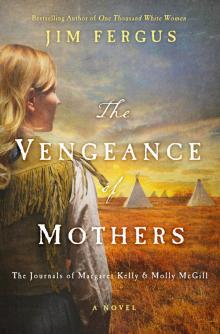 La Vengeance des mères
La Vengeance des mères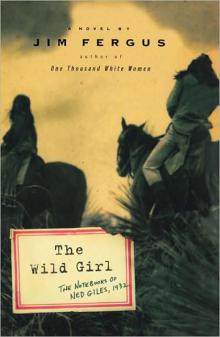 The Wild Girl: The Notebooks of Ned Giles, 1932
The Wild Girl: The Notebooks of Ned Giles, 1932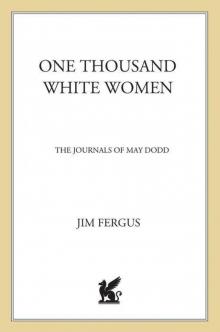 One Thousand White Women
One Thousand White Women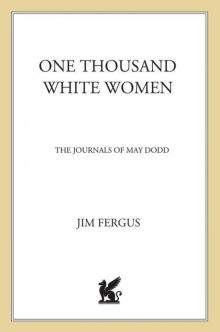 One Thousand White Women: The Journals of May Dodd
One Thousand White Women: The Journals of May Dodd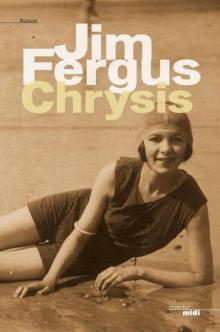 Chrysis
Chrysis Strongheart: The Lost Journals of May Dodd and Molly McGill
Strongheart: The Lost Journals of May Dodd and Molly McGill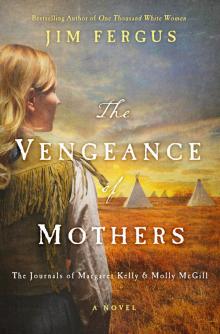 The Vengeance of Mothers
The Vengeance of Mothers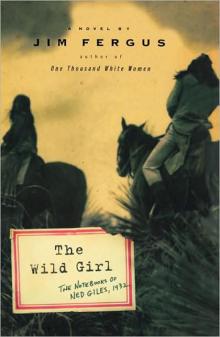 The Wild Girl
The Wild Girl